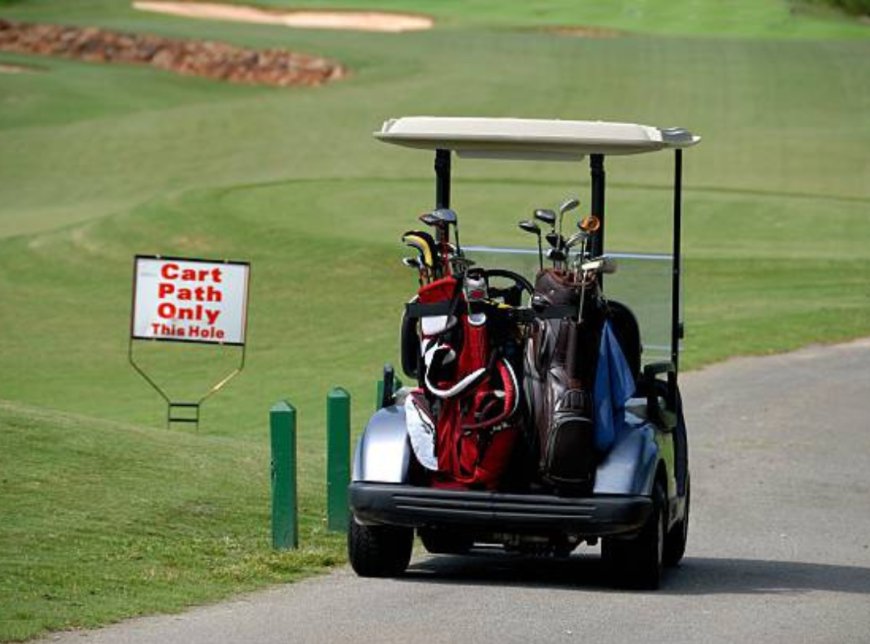Pros and Cons of Installing Speed Controllers on Golf Carts
Discover the benefits and drawbacks of golf cart speed controllers. Learn how they impact performance, safety, and efficiency before upgrading.

Golf carts are no longer confined to golf courses. From gated communities and industrial parks to beach towns and rural properties, golf carts have found a permanent place in everyday transportation. But with increased use and personalization comes the need for better performance and safety controls, particularly when it comes to speed. That’s where speed controllers come into play.
These small yet powerful devices regulate the acceleration and top speed of electric golf carts, giving owners greater command over how their vehicle behaves on different terrains. But are they always the right choice? Before you invest in one, it's important to weigh the benefits and drawbacks of installing a speed controller in your golf cart setup.
Understanding Speed Controllers: What Do They Do?
A speed controller is an essential electronic component in electric golf carts. It manages how much electrical energy flows from the battery to the motor, effectively controlling the cart’s speed and torque. In simple terms, it translates how much you press the accelerator into how fast your cart moves.
Depending on the type and sophistication of the controller, it can also control braking intensity, acceleration rate, and even reverse functions. Some high-end models even offer programmable features and smartphone integration for real-time performance tracking. These advanced capabilities make speed controllers an appealing upgrade for many cart owners looking to customize their driving experience.
Pros of Installing Speed Controllers on Golf Carts
Enhanced Speed Regulation and Safety
One of the biggest benefits of speed controllers is their ability to maintain consistent speeds, especially in environments where speed limits matter. Whether you’re driving in a retirement community, industrial site, or event venue, being able to cap or manage your top speed enhances both safety and compliance.
It also benefits parents who let younger family members use the cart, offering peace of mind by preventing accidental overspeeding. With programmable settings, you can fine-tune how quickly the cart accelerates, reducing jerky starts and potential accidents.
Customizable Performance Based on Terrain
Electric golf carts equipped with speed controllers can adapt to various terrains. On hilly routes, you can adjust torque for better climbing ability. On flat roads, you might dial it down for smoother cruising. This flexibility not only improves handling but also reduces unnecessary strain on your motor and batteries.
In fact, for those operating a street-legal golf cart in Millsboro, DE, and navigating both neighborhood roads and public streets, the ability to toggle speed settings becomes a game-changer. You can comply with local laws on slower roads while unlocking higher speeds in designated areas—all with the push of a button or tap of an app.
Improved Battery Efficiency and Longevity
Optimizing how much energy goes to the motor helps conserve battery life. Rather than draining power through uncontrolled bursts of speed, a well-calibrated controller allows for smooth, efficient acceleration. This means fewer battery charges and longer life cycles, both of which contribute to lower maintenance costs in the long run.
Additionally, this level of control minimizes overheating and reduces wear on internal components, extending the overall lifespan of your cart’s electrical system.
Cons of Installing Speed Controllers on Golf Carts
Upfront Cost Can Be High
One of the main drawbacks of installing speed controllers is the initial expense. Depending on the brand and features, a quality controller can cost anywhere from $200 to over $1000, not including installation. For many cart owners, this price point can be a significant barrier, especially if their usage is occasional or limited to short distances.
Additionally, some advanced controllers may require compatible motors or wiring upgrades, further increasing the total cost. It’s essential to evaluate your specific needs and budget before committing to a purchase.
Installation Can Be Complex
Installing speed controllers isn’t always a simple plug-and-play operation. Some models require technical expertise, especially when integrating with onboard diagnostics, motor tuning, or regenerative braking systems. Mistakes during installation can result in poor performance or even damage to the motor or controller.
For this reason, professional installation is highly recommended. However, that adds to the overall cost and could mean additional downtime for your cart. If you’re someone who prefers DIY upgrades, this might not be the ideal entry point unless you have a solid background in electrical systems.
May Void Manufacturer Warranty
Before installing any aftermarket speed controllers, it's crucial to read your golf cart’s warranty details. Many manufacturers stipulate that any unauthorized modifications, including to the speed regulation system, can void the warranty. That means if anything goes wrong, you may have to pay for repairs out of pocket.
This risk is especially relevant for new cart owners who are still within the warranty period. If you’re thinking of upgrading, it’s worth consulting with your dealer to see if there are approved models that won’t interfere with your coverage.
Choosing the Right Speed Controller for Your Needs
Not all speed controllers are built the same. Some offer basic functions with limited adjustability, while others are loaded with features like GPS tracking, multiple driving modes, and regenerative braking. The best choice depends on how and where you use your golf cart.
If your cart is primarily used in a residential setting or for occasional weekend fun, a basic model may suffice. However, suppose you're customizing a cart for commercial use, events, or as a street-legal golf cart in mixed-use areas. In that case, a more advanced controller with variable speed settings and diagnostics can provide much more value.
Remember, it’s not just about going faster. The right controller gives you smarter control—adapting to terrain, protecting your system, and aligning with local regulations.
The Bottom Line
Ultimately, speed controllers can offer a tremendous upgrade in functionality and performance, but they’re not for everyone. If your golf cart use is frequent, diverse, or includes road travel, investing in a high-quality speed controller makes sense. It offers better safety, efficiency, and customization than basic stock setups can match.
However, for casual users or those concerned about cost and warranty issues, it may be more prudent to wait or consult a professional for guidance. Either way, understanding the full scope of benefits and risks ensures you make an informed, worthwhile decision for your golf cart’s future.






















































































